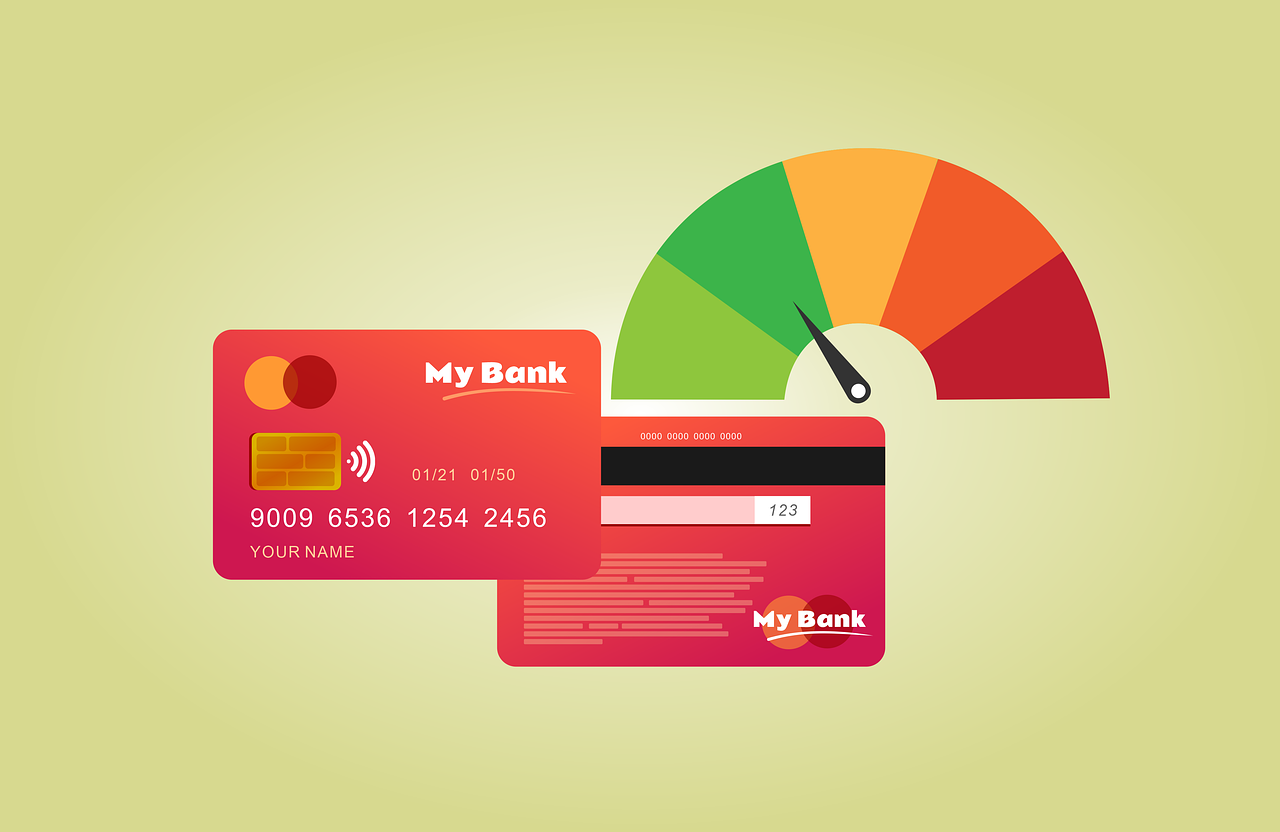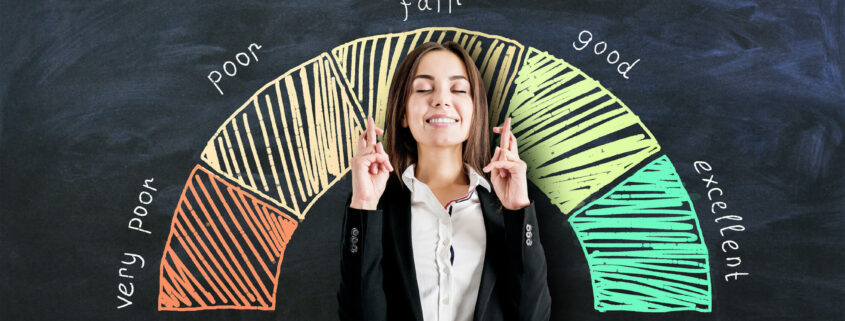How to Improve Your Credit Score
Your credit score is a numerical value (usually from 0 to 999) and is used by loan providers and credit companies to determine whether you will be eligible for credit. Your credit score is something that you get automatically in the UK when you turn 18 and is supposed to evaluate your ‘creditworthiness’ and likelihood of repayment.
When a lender is processing your loan application, they will typically run a credit check by accessing your score through one of the main credit reference agencies of Experian, Equifax and Call Credit. At The One Stop Money Shop, we work with Equifax to run our data checks.
How a credit score works
A credit score is a number formulated on how well you have paid other forms of credit in the past such as credit cards, personal loans, payday loans and other factors too.
Credit scores from Experian can be broken down into five categories; very poor (0 – 560), poor (561 – 720), fair (721 – 880), good (881 – 960) and excellent (961 – 999).
The more loans that you repay on time, the higher your credit score will be. But if you fail to repay your loans and other debts on time, you will have a lower credit score.
Your score can constantly go up and down based on how well you repay your debts. So if you have a bad credit score, this can always improve. But if you have a good credit score, you will need to keep repaying on time to maintain your high score.
Credit score is key to approval
Those individuals with higher credit scores tend to have a better chance of approval for financial products, such as loans. This is because they are deemed a lower risk by the lender and there is a better probability of the customer paying on time. This is not always the case, however, since someone could have a good credit score but still have a lot of loans open or debt outstanding – and this is where good underwriting comes into place.
If you have a bad credit rating, you are less likely to be approved for mainstreams loans and financial products. Your eligibility will usually require additional security such as having a guarantor, putting down something as collateral or paying a significantly higher interest rate to mitigate the risk of default. Since your credit score is so important, we explain how you can improve it below and why it is relevant to applying for loans too.

Check your credit file
Firstly, let’s understand what your current score is and what scope there is for improvement. To access your score, there are 14-day free trials available from the likes of Experian, ClearScore and Noddle so that you can log in, see your score and see what factors are impacting it.
The Government also offer a £2 statutory credit report, that allows you to see your current credit file and score.
Beyond this, if you are passionate about improving your credit score, you should continue to check it regularly. Each time you make a repayment on time or pay off a credit card debt, you should monitor your score closely to see how you are improving.
Join the electoral roll
By registering to vote with your local authorities, you are confirming your name, age and address and this is considering a good trust signal. For potential creditors, it gives peace of mind knowing that you are a real person and with a real residence. You do not necessary have to vote in the upcoming elections if you do not want to, but it is a good place to start building your score. You can join the electoral register here.
What is the effect of this?
Joining the electoral roll will not magically turn a bad credit score into a good one. However, it is a good thing to have if you are serious about your financial prospects and particularly for young people who are starting fresh with no credit score, it can be a good starting point.
Avoid making too many loan applications
For those actively looking for short term loans, they might consider making numerous application online with different lenders, in an attempt to improve their chances of approval. However, this comes with caution, since making too many applications in a short space of time can send a warning to potential lenders of someone that is financially stretched and desperate for finance. This is shown on your credit file by ‘search footprints’ which are recorded every time a lender or provider runs a credit check on you. So having too many search footprints in short space of time, is not advisable.
What is the effect of this?
By having too many search footprints, you can seem unattractive to most lenders. It is normal to have around 12 search footprints at any time, but any more is deemed excessive. You should try avoid using online loan brokers because this could trigger multiple searches at once. Either way, credit searches will disappear from your file will after 12 months.
Remove any credit cards and store cards you do not use
It is very easy to sign up to new credit cards and store cards from our favourite retailers and supermarket chains. However, having too many credit cards means that you potentially have access to thousands of pounds, which you may or may not use.
For most lenders, they are likely to be more cautious if you have numerous cards open, because the repayment of these cards could be prioritised over their loan instead – and someone who has access to an extra £10,000 could have too many outgoings to repay their short term loan on time.
What is the effect of this?
Removing any unused credit cards or store cards will have a positive effect on your credit rating. However, you must not just cut up the card, you will need to contact the provider and physically close the account.
Disassociate from people with bad credit
We may regularly set up joint accounts with parents, siblings or spouses – whether it is current accounts or mortgages. But having a joint account with someone with bad credit, does not look favourably on you. The notion of a joint account assumes that you share financial responsibility or are willing to help your partner if they fall behind on repayments. This can achieve to lower your credit score or impact your chances of approval for mainstream finance.
What effect does this have?
Being associated with someone with a very bad credit history, IVAs or CCJs can have a negative impact on your own credit rating by being guilty of association. Removing yourself from any joint financial obligations will achieve to better your score and financial position significantly.
Rebuilder credit cards and products
For this with bad credit histories, you can use rebuilder cards to improve your score. This is where you use a credit card and borrow a small amount, at a high interest rate, and get into the rhythm of paying it off on time. Every time you make a payment as scheduled, the information is fed back to one of the credit reference agencies and updates that you are good at making payments.
What effect does it have?
Using rebuilder credit cards can successfully build up your credit score. Over time, you will need to keep making payments on time for other financial products. But this approach can effectively take a bad credit rating and make it an average or good credit score over several months or years.
Pay bills on time
Leaving the most important until last, individuals are encouraged to repay any outstanding bills on time. This includes credit card repayments, loans, mobile phone bills, utility bills and not paying your car finance can impact your credit too. Every time you are repaying a debt on-time, you are either improving or maintaining your credit score and also saving money too, but not paying any late fees, default charges or having to pay more for credit in the future.
If you are ever behind on your payments, try speak to the provider beforehand and explain your situation. If you are a good customer, they will be able to assist with lower payments, payment holidays or reduce any late fees.
What effect does this have?
Making repayments on time is the most important thing you can do to boost your credit score. It demonstrates trust and an ability to make payments on time, and this is exactly what your credit score aims to determine.
To conclude, if you can follow the tips outlined by The One Stop Money Shop and prioritise regularly checking your credit file and keeping up with repayments, you will be on track to having a strong credit rating and a life of sound financial freedom.
To learn more about borrowing, finance, credit score and checks, take a look at the latest financial guides published by our team.



Leave a Reply
Want to join the discussion?Feel free to contribute!